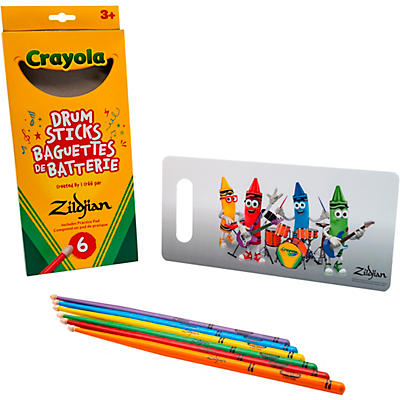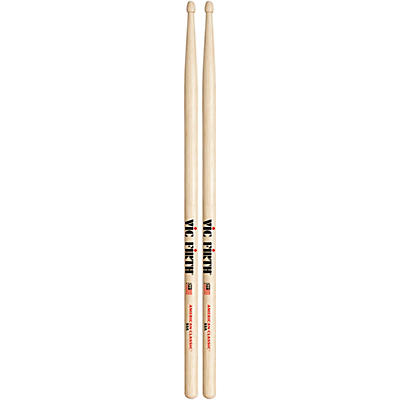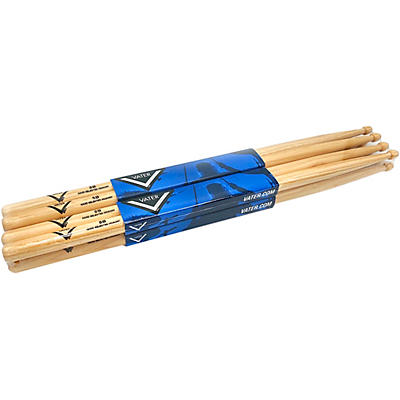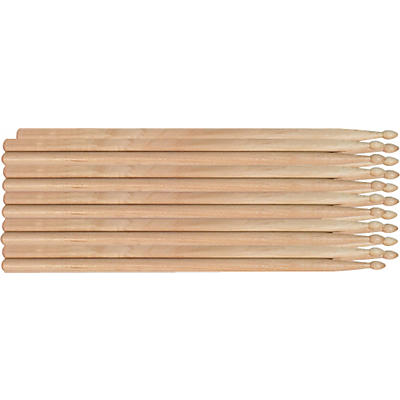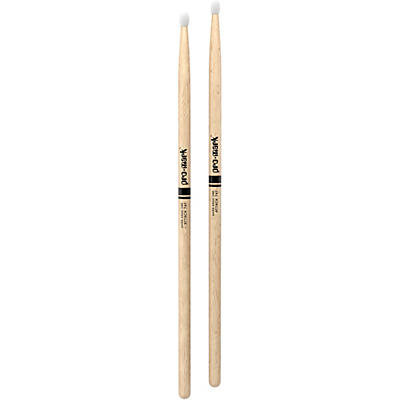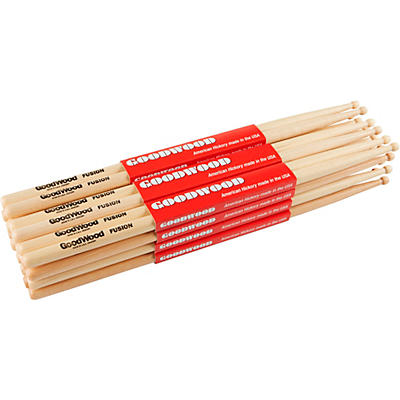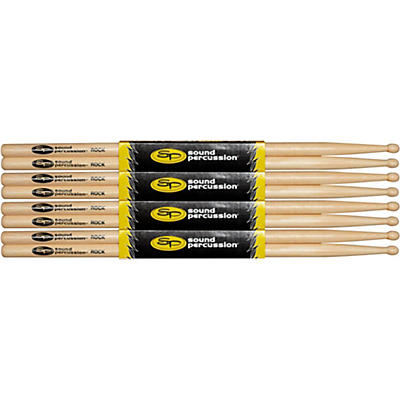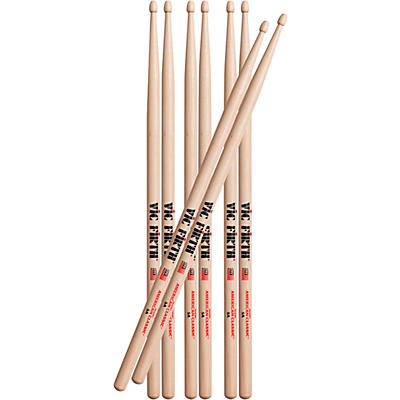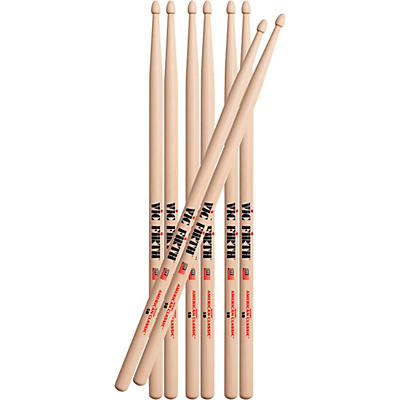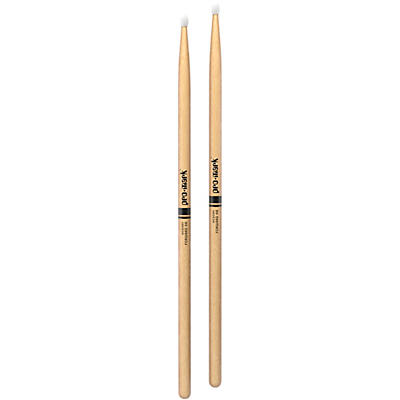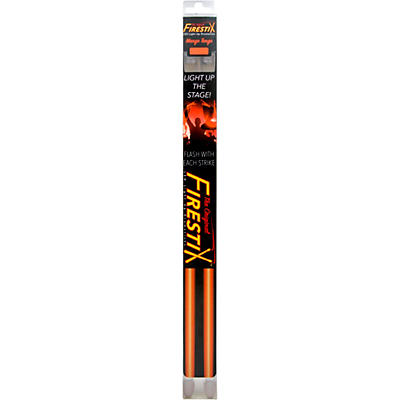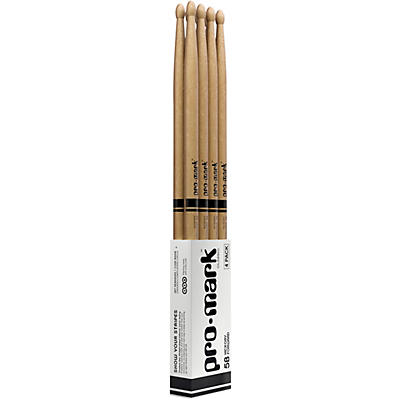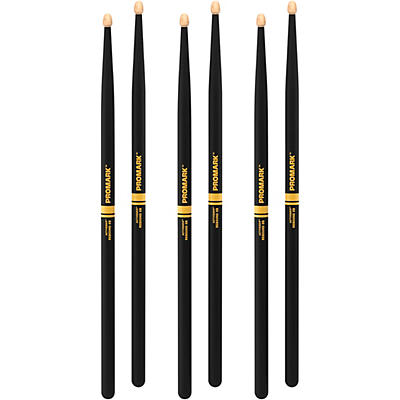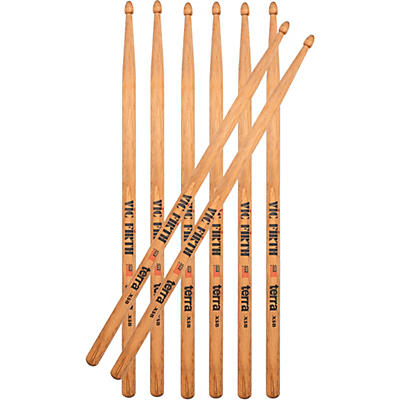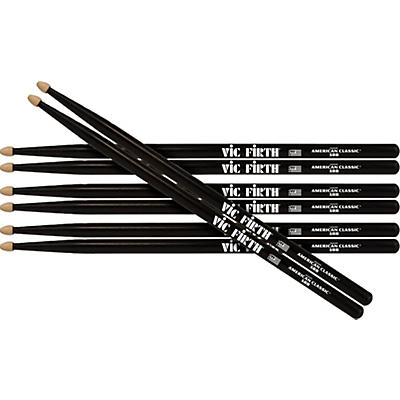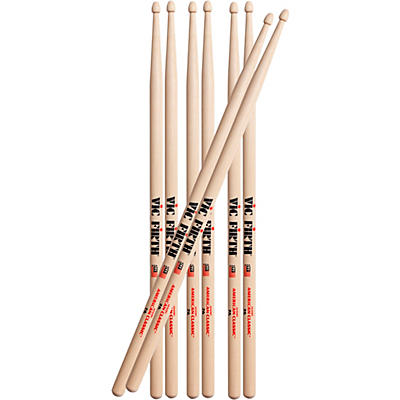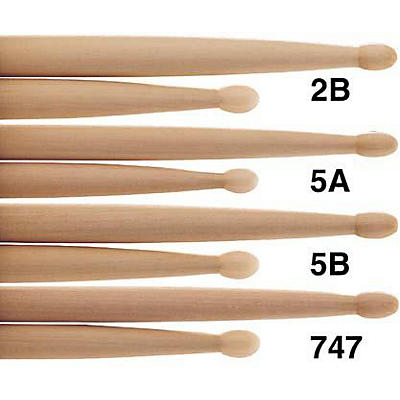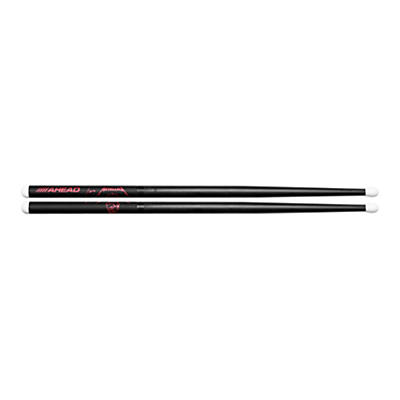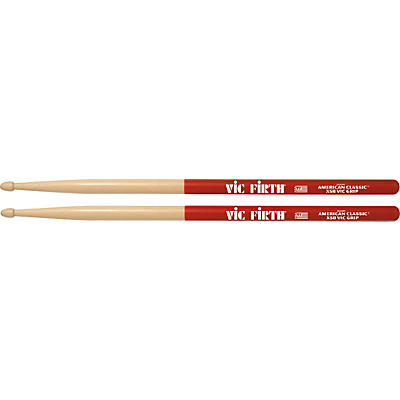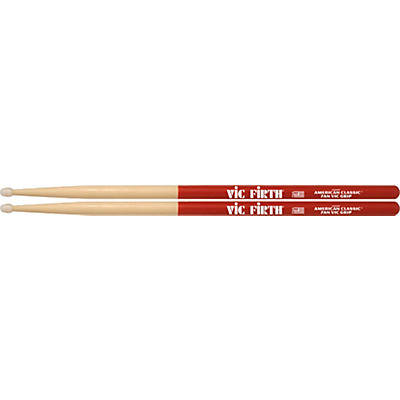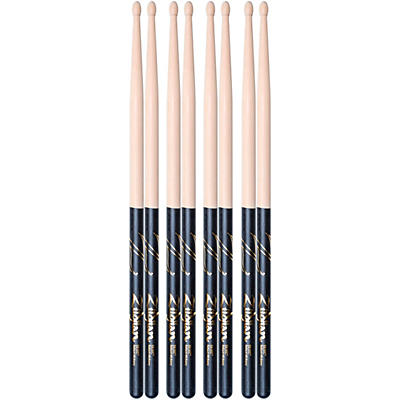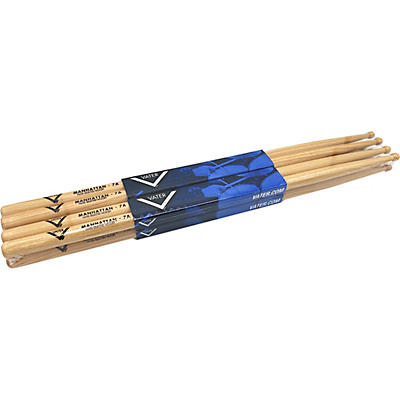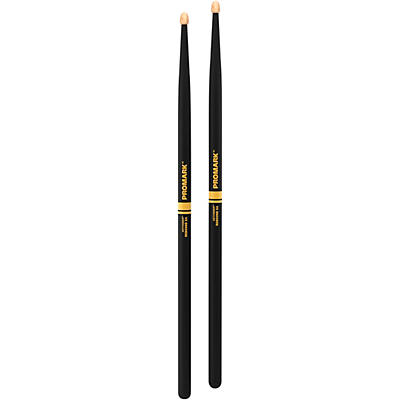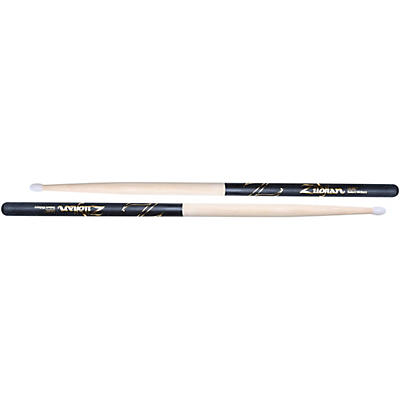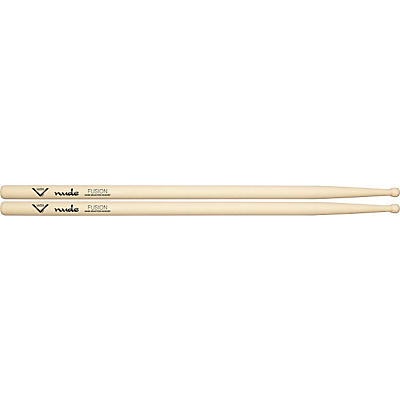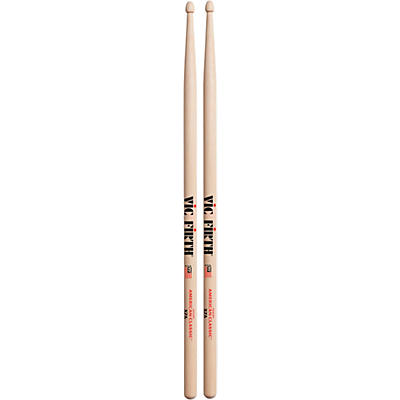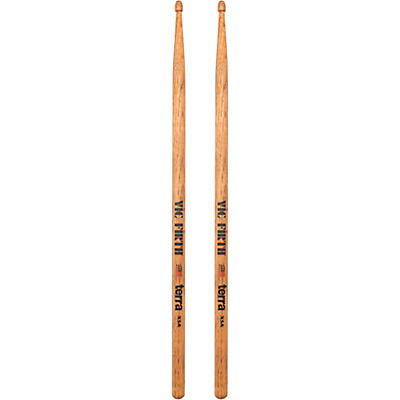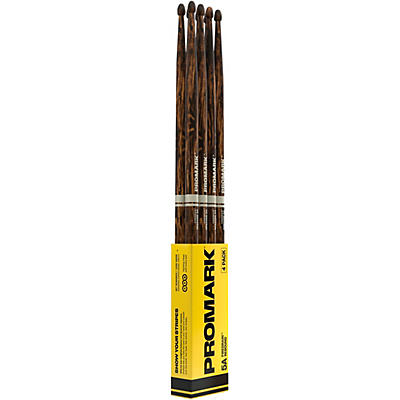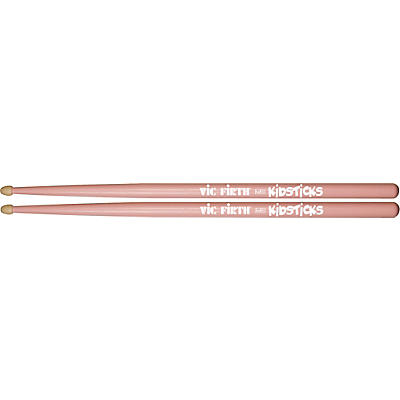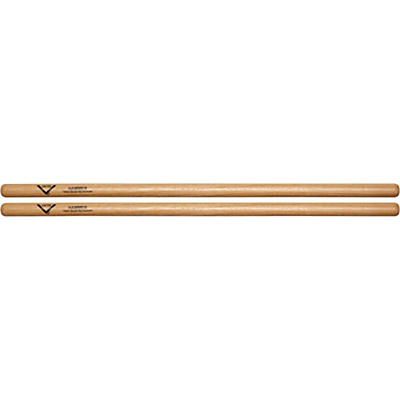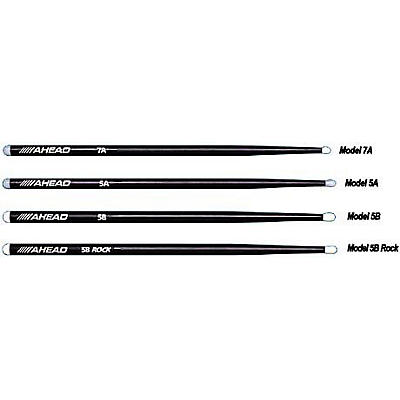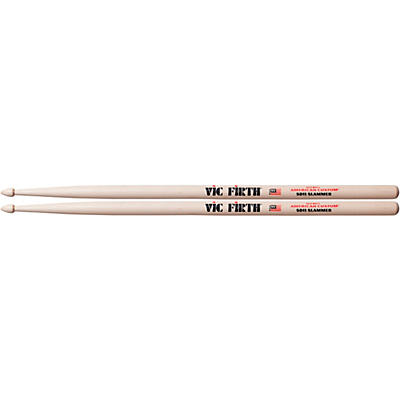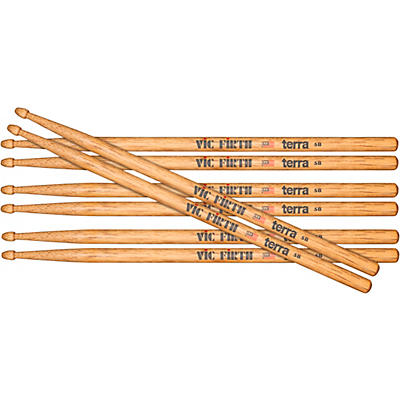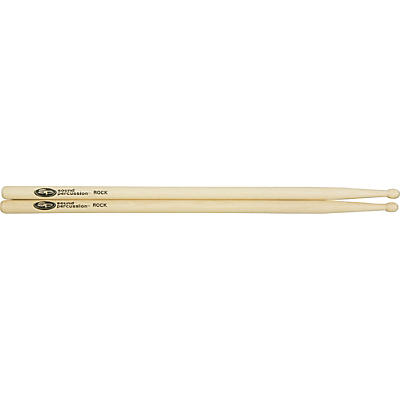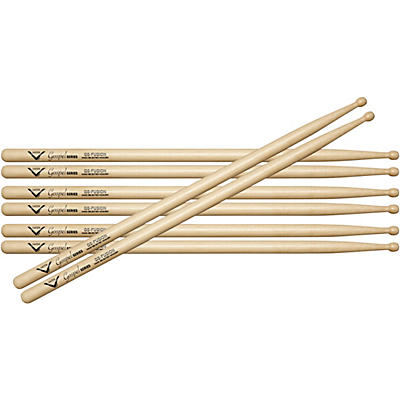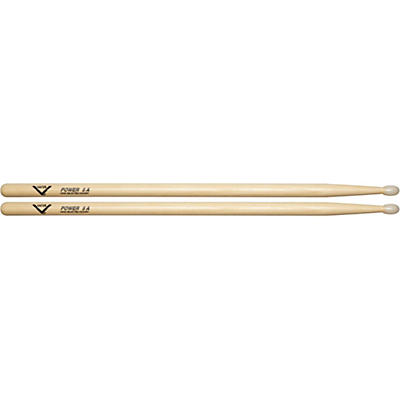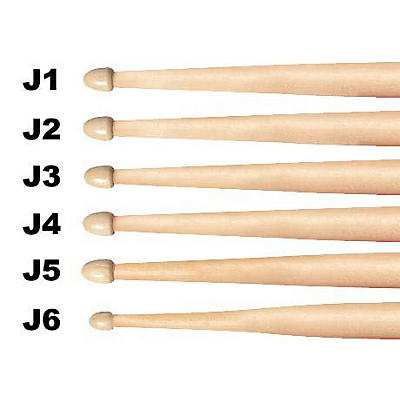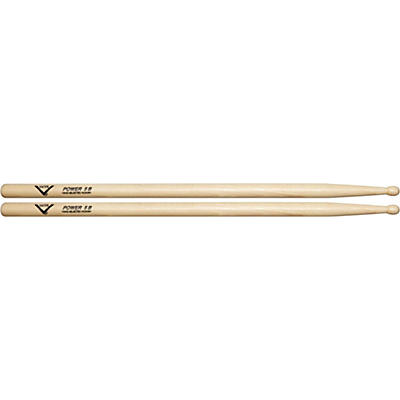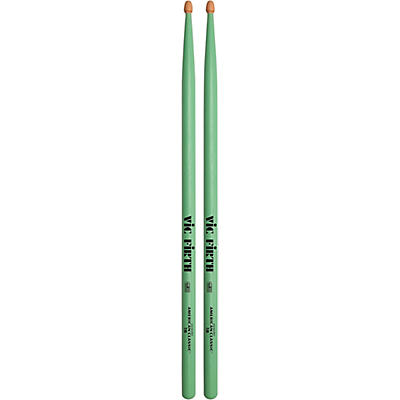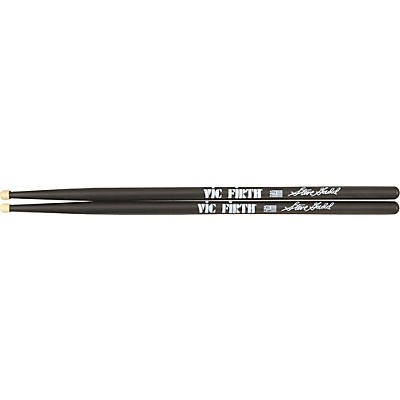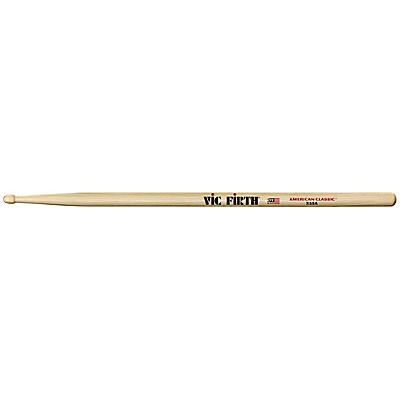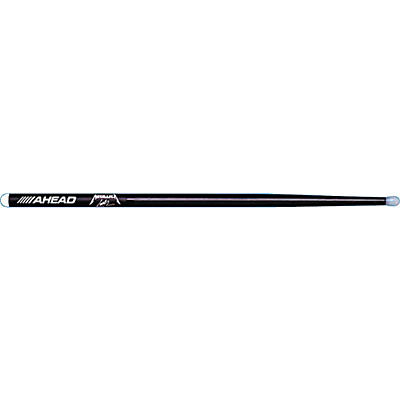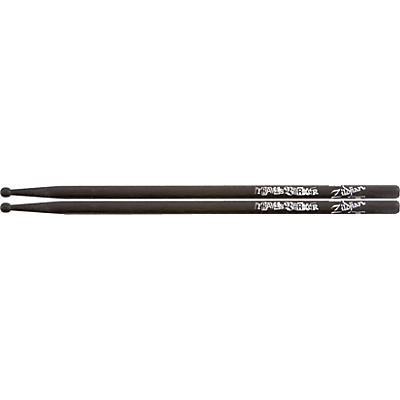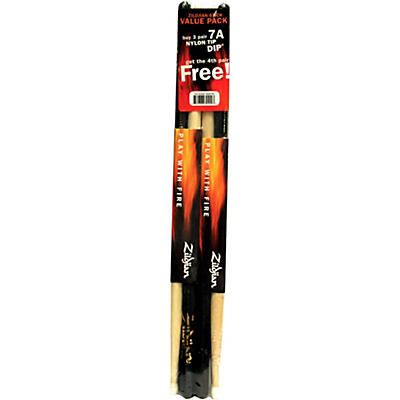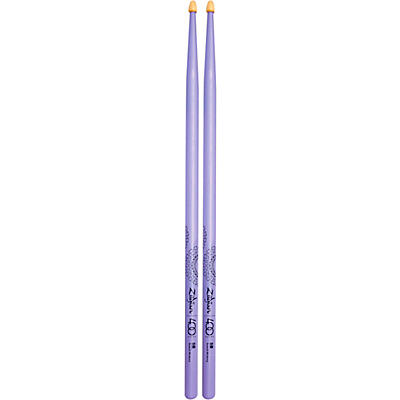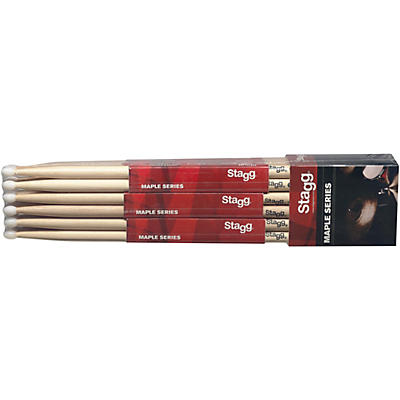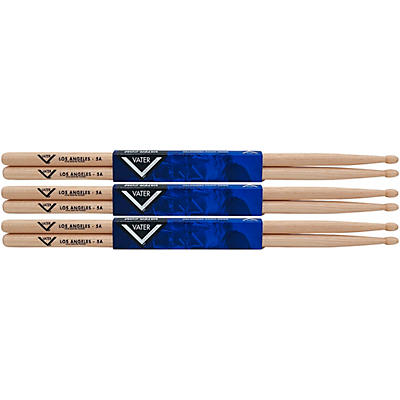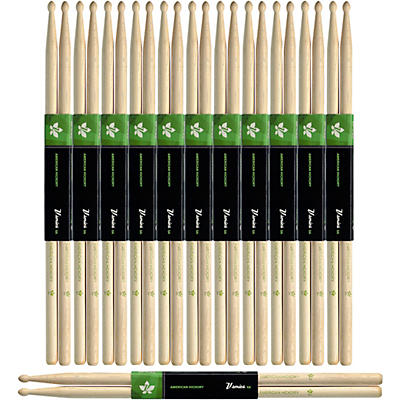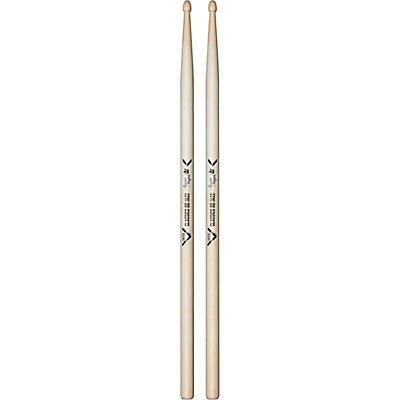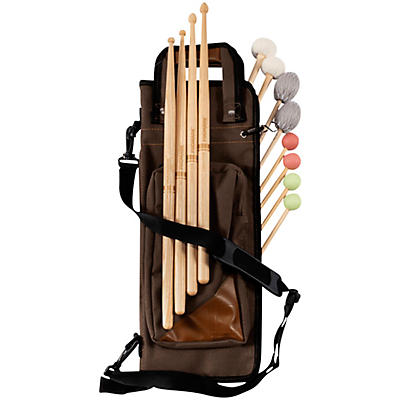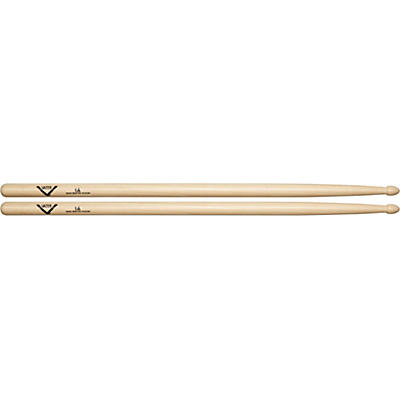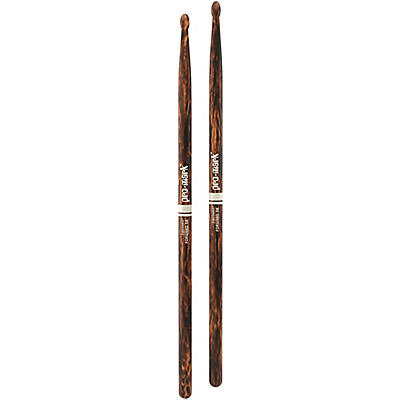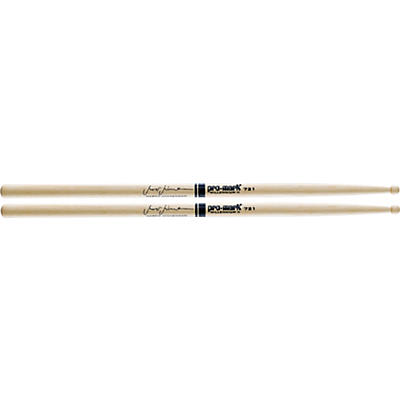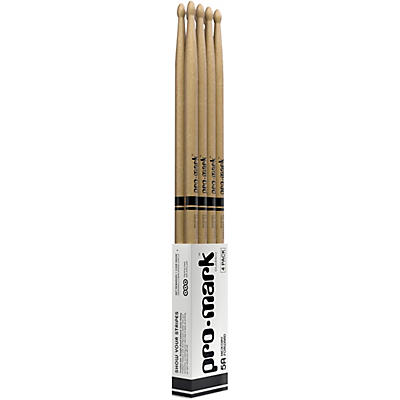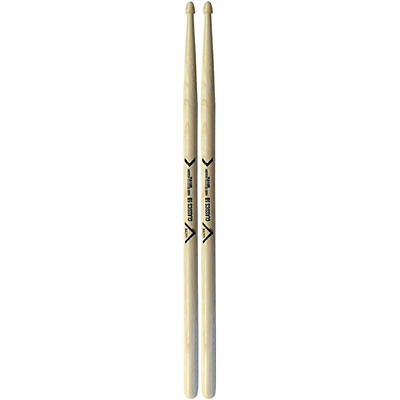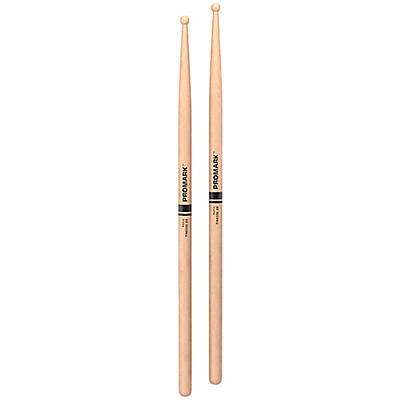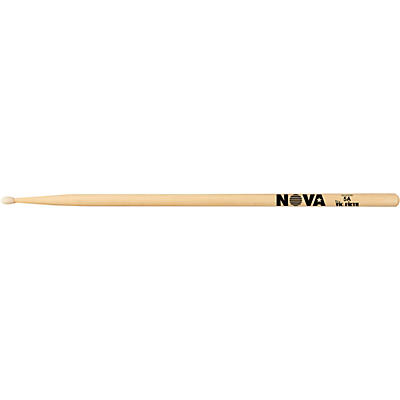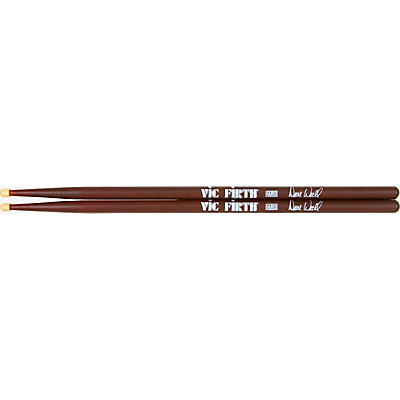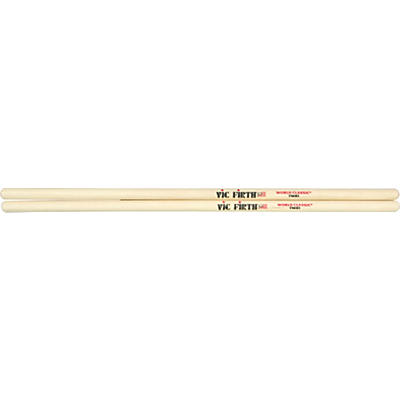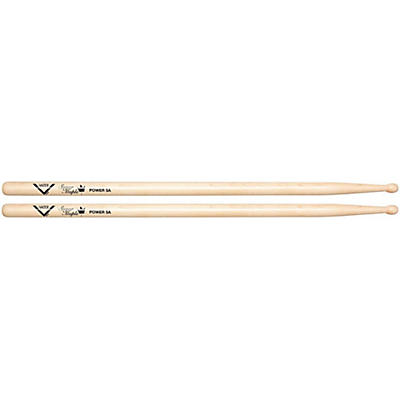About Drum Sticks
Drum sticks are percussive tools that a drummer uses to play their drums. The type of drum stick a player uses helps them produce different tones from their instrument. Many drum sticks are identified with a number and a letter. The number describes the weight and diameter of the stick, with 2 being the heaviest and 9 being the lightest. The letter indicates what the tip shape is. The system isn’t universal and differs from manufacturer to manufacturer. However, classic models (like 2B, 5A, 5B and 7A) tend to be similar across brands, which helps when testing out new sticks. Drum stick manufacturers may also classify their sticks by genre. So, if you’re a jazz drummer, you might want to look into a jazz drum stick.
Popular Drum Stick Brands
At Musician’s Friend, you’ll find no shortage of drum sticks to choose from. We offer hundreds of styles from brands like Vic Firth, Promark, Vater Percussion, Innovative Percussion and more. Brands like Vic Firth and Zildjian also offer signature drum sticks from top drummers, so you can capture the sound of your favorite pros. Plus, you’ll also find top sellers from Musician’s Gear and Sound Percussion Labs.
Parts of a Drum Stick
There are four basic parts of a drum stick: the tip, the shoulder, the shaft and the butt. The tip, also called the bead, is the part of the stick that strikes the drum. The shoulder tapers to the tip, and is used to play the bell of a cymbal or for loud crashes. The main body is the drum stick shaft. Drummers usually grip the stick at the shaft, and it can be used to play cross stick. Lastly, the butt is the opposite end of the tip. Heavy metal or rock drummers sometimes opt to play using the butt instead of the tip.
Drum Stick Tip Shapes
The most common shapes for a drum stick tip are: oval, teardrop, round or ball, acorn and barrel. Oval tips can be used for most styles and produce a sound with warm tone and great bounce. Teardrop tips are also warm and can focus in on lower tones. Round or ball tips produce crisp and articulate sound suited for jazz and snare drummers. Full, rich sound comes from acorn tips. Barrel tips pack a punch and get loud. If you need to be heard over other instruments, they’re a great option.
Drum Stick Thickness
Thickness of your drum stick also affects the sound. Thinner sticks allow for a softer sound, perfect for jazz drumming. Rock drummers love a medium thickness for versatility that can bring the noise or turn down for a softer ballad. Hearty heavy metal or hard rock artists give it their all with thicker sticks.
Drum Stick Materials
Most drum sticks are made of either oak, hickory or maple wood. Oak drum sticks are the heaviest wood, and last the longest. Oak is durable and well-suited to intense playing, particularly for metal and rock drummers. Drummers who want to hit hard but don’t want a heavy drum stick will like the natural feel of hickory. It’s lighter than oak wood and is still a durable option that provides a lot of versatility, with moderate energy absorption and flexibility. Maple sticks wear out sooner but are a great option for drummers who prefer a thicker design since it is the lightest wood option. A lightweight maple stick has stand-out flexibility and gladly absorbs energy, saving your hands from an extra hit. Drum sticks can also be made of plastic or composite materials for more durability. Plastic sticks can come in fun colors for extra flash in a performance. Composite sticks are made of materials like carbon fiber, metal alloys and more.
Wood Tips vs. Nylon Tips
Drum stick tips are commonly made of wood or nylon. Occasionally, you’ll find stick tips made with felt, plastic or rubber. Nylon tips help the cymbals emerge in a softer, smoother manner with a brighter overall sound. Drummers who use electronic drum kits will want a nylon tip drum stick, as wood can split and damage drum pads. Traditional wooden tips, while prone to chipping, bring you a classic sound that’s full and warm. What an individual drummer prefers will come down to the sound they’re trying to create.
Lacquered Drum Sticks vs. Unlacquered Drum Sticks
Drum sticks come in lacquered or unlacquered designs. This can affect a drummer’s grip and the lifespan of the stick. Lacquering is a finish that seals the wood to prevent moisture, and has a slicker feel. Unlacquered drum sticks will have a tighter grip, since it’s closer to raw wood, but are more susceptible to environmental damage.
Concert Drum Sticks
Depending on the type of drumming you do, you may require a specific drum stick. Concert drum sticks come in many varieties, from standard to specialized and multi-purpose playing. Double-ended concert drum sticks have different drum tips on either end of the stick. This gives concert drummers a versatile, all-in-one option. Innovative Percussion’s James Campbell multi-stick allows a concert drummer to play several types of percussion instruments (like snares, cymbals and timpani) with just one stick. There’s plenty of signature models from top concert drummers to try out too.
Marching Drum Sticks
Power and punch with control and durability is a must-have for snare drummers. Marching snare drummers will want a drum stick that’s longer than the standard 14 inches. 17 inches is the typical length of a snare drum stick. Vic Firth Corpsmaster drum sticks, as well as Promark’s and Innovative Percussion’s marching snare series are great options for this type of percussive drumming.
Timbale Drum Sticks
Timbaleros require specific drum sticks since they play a wide range of percussive sounds from a timbale. Timbale drum sticks have a unique shape with a domed tip and butt end. They are lighter and thinner so they can deliver bright rim shots, rolls and more. Because of their unique design, timbale drum sticks bring out the classic sounds a player wants. Regular drum sticks won’t produce the same effect.
History of Drum Sticks
Humans have been using drum sticks to play since at least the 14th century CE, and possibly as early as the 7th or 8th century A.D. in Kazakhstan and China. The design has evolved heavily over the years, especially with military drummers. The modern drum stick design we use today was popularized in the 1950s with the widespread appearance of the three piece kit. Drumming became more accessible, with catchy Carl Perkins-inspired bands popping up all over America. Rock 'n' roll took the world by storm and the common 4/4 timing, coupled with a spin of a drum stick, ignited dance halls. Nostalgic musicians may still choose to play this way. With so many different genres in today's scene, it's no wonder there is such a colored collection of drum sticks. Find you new favorite drum sticks here at Musician’s Friend.







































































































































































